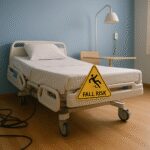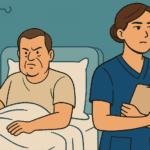Posts
Sign up for our monthly newsletter and learn how to protect your nursing license as well as tips for working as a Legal Nurse Consultant (it’s free).
As an attorney who hires medical and nursing experts, and testifies as an expert myself, I can tell you this: most nurses who are curious about expert witness work are far closer to being qualified than they think—but many are not prepared for what the…
Read More...“Never Events” – What They Are and Why Nurses and Legal Nurse Consultants Need to Know and Understand Them. ⚠️ What Are “Never Events”? “Never Events” is a term coined by the National Quality Forum (NQF) to describe serious, preventable, and clearly identifiable medical mistakes…
Read More...By Laurie Elston, JD, RN – Nurse Attorney and Legal Educator An estimated 50% of nursing home residents experience at least one fall each year. Falls are not only a leading cause of morbidity and mortality in the elderly but also among the most common…
Read More...The Board of Nursing recently filed charges against 2 registered nurses for gross negligence and incompetence for their failure to provide appropriate care for a patient c/o chest pain. Do you think the facts support the charges? 📑 Facts: RN #1 was employed as the…
Read More...Wisconsin prison nurse (Becky RN) was sued in federal court under 42 U.S.C. §1983 for “deliberate indifference” to a serious medical need, following a prisoner’s ruptured appendix. The case provides valuable insight into legal risks, standards of care, and best practices for nurses — especially…
Read More...Artificial intelligence (AI) is no longer a futuristic concept—it’s rapidly becoming a game-changing tool in both healthcare and the legal profession. AI offers powerful ways to enhance research and writing with efficiency and accuracy. But it also introduces new ethical responsibilities and professional considerations –…
Read More...In this ED misdiagnosis blood clot case study, the plaintiff, a 35-year-old man, presented to the emergency department (ED) of a General Hospital on March 7, 2015, with complaints of back pain and a cool, discolored left foot that was turning “purplish” [per plaintiff’s counsel description.…
Read More...Understanding the top reasons behind nurse disciplinary actions can help protect your license and professional reputation. In this post, we explore common disciplinary triggers and real case examples to help you avoid similar outcomes. #1. Unprofessional Conduct: This broad category covers behaviors that violate ethical…
Read More...Nursing malpractice lawsuits often result from preventable mistakes. In this post, we explore the most common causes and how nurses can reduce risk. Top Causes of Nursing Malpractice Lawsuits These failures to act as a reasonably competent nurse would have most commonly resulted in the…
Read More...








